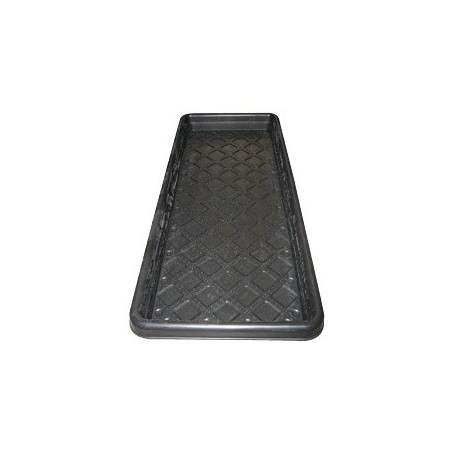Because African Swine Fever (ASF) is essentially unknown in modern major swine-producing countries, the sense of mystery surrounding the disease is leading to two observable reactions. The first is a slowly developing feeling of impending doom among some, the only question is when will it strike? With others, a seeming sense of invulnerability has fostered a kind of complacency or skepticism like the post-Y2K lesson, “you can’t scare me with big but improbable threats anymore”. Expert commentary however is emerging suggesting that the presence of the virus in China and now spreading within the heart of the EU means that in the span of a year or two we will be engulfed in a worldwide pandemic.
There is no doubt if the disease is discovered in a major piglet or pork producing/exporting country such as Denmark, Germany, Spain or the USA, the mortality it causes would be only the beginning of the woes. The business disruption and profit losses from export cessation would range from big to staggering. Unlike some viral diseases affecting swine, this one does not normally move around in an epidemic wildfire that vigorous bio-security and prevention cannot mitigate substantially. However, it is almost the casual ways it sneaks up in wild boars/feral swine moving around in the shadows and forests. Insects likely play a more important role once an infection is within the farm, however, some of the largest modern outbreaks in the last 5 years in the EU cannot pinpoint with certainty how the disease entered the herd.

People play a very important role in moving the virus around. Some of the biggest problems are caused by careless disposal of food garbage, the sharing of infected pork meat and its products with distant family or friends etc. and negligent bio-security practices among farm workers. EU production systems run the full range from highly modern, bio-secure systems to small, traditional pig farms. Compared to the USA the EU is characterized by many more of these small and diverse family farms that have correspondingly more inadequate farm-level bio-security in terms of fencing, truck washing, etc. Continuous flow production on these farms mitigates against periodic disinfection of buildings.
I will never forget passing by the agriculture inspection area when re-entering the USA from a Caribbean country and seeing a distressed man of foreign origin with his suitcase open revealing large pieces of raw meat laying on the plastic bags which had contained it until discovery. It is highly likely that he was bringing special cuts of meat unavailable in the US to family or friends to enable a kind of prized, sharing around a traditionally consumed meal. I spoke with an agent there who told me it happens every day and multiple times and they are sure they catch only a fraction of cases.
Developed nations have a plan for the containment and quick eradication of discovered “patient zero” pigs but the cure is brutal on the local level. Complete depopulation of the contaminated farm and every pig within a governmentally prescribed distance of varying kilometers (regardless of symptoms) is the plan. Eradication protocols may leap long distances if it becomes clear that newly infected pigs were transported to other regions or countries just prior to diagnosis etc. Free movement of people through Schengen country borders may become an important risk factor the same way free movement among states in the USA would make control increasingly difficult after a certain critical mass of infection develops. This could happen more quickly in scenarios where the cause or point of entry for the first and subsequent cases cannot be quickly ascertained. Some countries have already approved compensation schemes for when and if eradication is required. Hopefully, this doesn’t dampen the incentive to be vigilant and a stickler for both bio-security and careful personal hunting and food disposal habits.
We have written quite a bit recently about the lynch-pin character of the packer/processor you choose for selling your pigs. Choosing the right packer/processor is key to success when the kinds of events described above threaten. Even though governments and their economic and animal health ministers will spring into action to close exports/imports and eventually declare them open again when safety is assured, it is the export experienced packer/processor who will be in constant contact with domestic and foreign buyers/customers and by working closely with his/her key suppliers (pig producers) will be able to open those markets faster and with larger volumes, assuring skittish foreign buyers of product safety faster than “meat salesmen” who cannot offer the same level of credibility and assurances as one in close, transparent communication and partnership with their suppliers.






